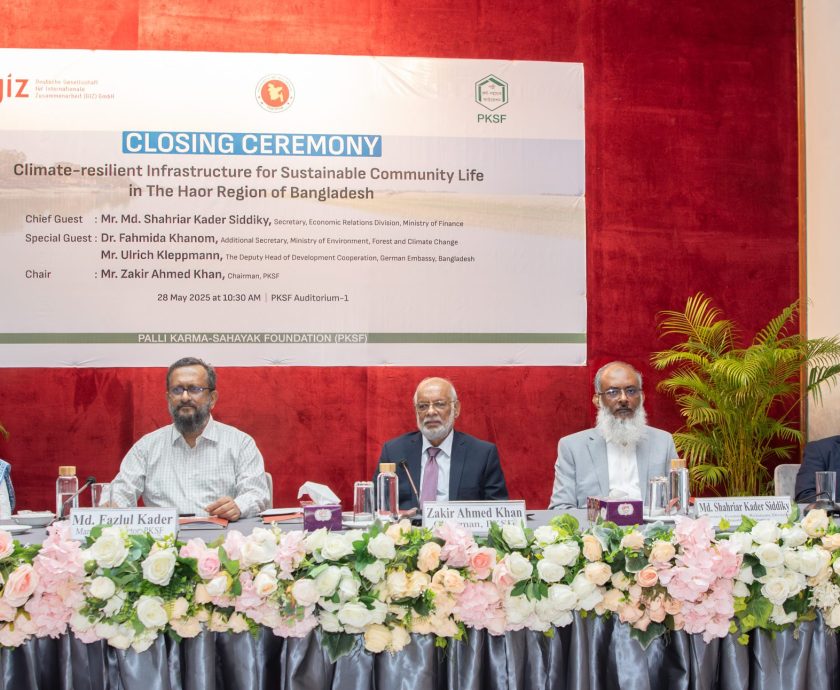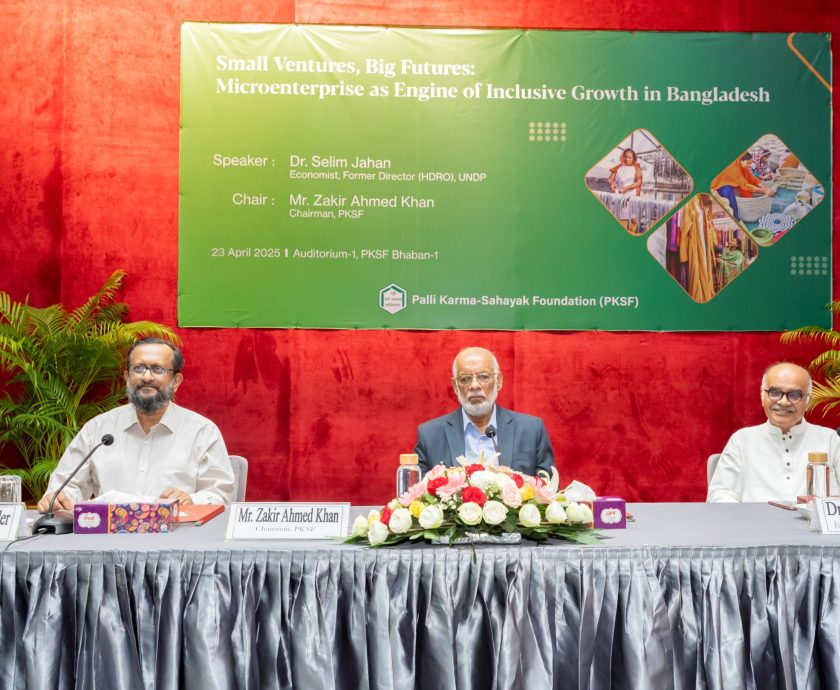Education, health, social security, employment creation should be prioritized in budget: PKSF Chairman
PKSF Chairman Zakir Ahmed Khan has said that education, health, social security, development and employment generation should be given priority in the upcoming budget of the Government of Bangladesh government for the fiscal year 2025-2026.
PKSF Chairman Zakir Ahmed Khan has said that education, health, social security, development and employment generation should be given priority in the upcoming budget of the Government of Bangladesh government for the fiscal year 2025-2026.
“We must prioritize quality over quantity,” he said in an exclusive interview with national Bangla daily the Banik Barta. In the interview published on 1 June, Zakir Ahmed Khan shared his perspectives on budget priorities and the underlying philosophies of fiscal planning in Bangladesh.
“While formulating the budget, two fundamental issues must be considered: identifying available resources and determining their sources. Only then can we decide how the resources should be spent.”
Recalling his experience as the Finance Secretary, he said the government has a Budget Management and Resource Committee, chaired by the Finance Minister. This committee, along with the National Board of Revenue (NBR) and other stakeholders, evaluates the potential revenue and sets a resource envelope based on which the budget is drafted. It’s essential to keep these estimates realistic. If not, the budgeted expenditures may be sound on paper, but the actual revenue falls short, leading to an unsustainable deficit. A growing budget deficit affects all sectors by threatening macroeconomic stability. Maintaining that stability is one of the core responsibilities of the Finance Ministry because even minor disruptions in macroeconomic balance can ripple through the entire economy. Though some level of budget deficit is expected, it should be carefully managed through a combination of foreign aid and domestic borrowing. In our approach to budget formulation, we have always given the highest importance to maintaining macroeconomic stability.
Asked about what the key issues are taken into consideration while determining fund allocations, Zakir Ahmed Khan said, “Economic development is, of course, the ultimate goal. But the real question is: how do we achieve it through sector-wise allocations?
“Every sector demands increased allocation. Many argue against cuts to education, health, or social security—these are competing priorities that must be balanced. With limited resources, equitable distribution becomes a challenge. The budget cannot be framed on speculative revenue forecasts. More important than how much is allocated is what outcomes are achieved with that spending. In the current economic context, our budget must be grounded in realism. Political considerations do influence the process, and often the revenue targets set for NBR are overly ambitious. In practice, these targets are rarely met. Over the past few years, our economy has endured significant shocks, and quick recovery seems unlikely. The size of this year’s proposed budget, as reported, appears reasonable. The emphasis on reducing allocations to mega projects is a prudent move—something we all support. Although not all details are yet available, it seems many unnecessary expenditures have been cut. Mega projects, while transformative, can also lead to inefficiency and waste. Reforming the entire budgeting process will take time. I believe the government will gradually implement necessary reforms, guided by recommendations from relevant commissions and expert committees.
“Education, health, social protection, development, and employment generation must be given strategic priority in the budget. We must emphasize quality and value for money in every allocation. In many cases, better outcomes could be achieved with fewer resources if planning and execution are done efficiently. The time has come for such analysis to be institutionalized. Encouragingly, policymakers appear to be aligning with this mindset—focusing on outcome-oriented planning and evaluation.
“While we are still facing internal and global economic challenges that may persist for some time, it is crucial to remain grounded in reality rather than overly optimistic. Once the budget is formally presented, we will be in a better position to conduct a detailed analysis. Based on what I have seen so far, I am cautiously optimistic,” he added.
To read full text of the interview, visit:
To watch video of the interview, visit:



